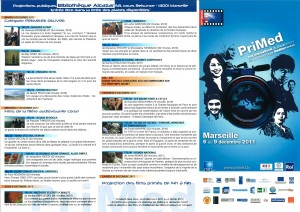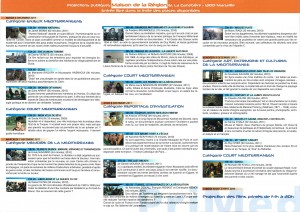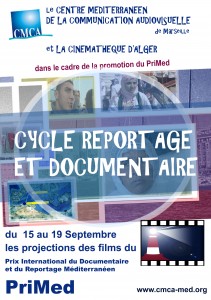FRANCOIS MITERRAND ALGERIAN WAR
FRANCOIS MITERRAND ALGERIAN WAR
by Frédéric BRUNNQUELL
70 minutes, 2010
Production : 2P2L, with the participation of France Télévisions / France
Final taboo or macabre revelation? Whichever you choose, Frédéric Brunnquell’s documentary with historians Benjamin Stora and François Malye, reveals a very shadowy area of François Mitterand’s political career, between 1956 and 1957 when he was Minister of Justice in Guy Mollet’s Socialist government and thus responsible for guillotining 45 Algerian nationalists who may, or may not, have had blood on their hands. “I have committed at least one error in my life – that one,” he said during the 1981 presidential campaign – before abolishing the death penalty later the same year. Yet in 1956 the ambitious 40 year-old had to make concessions to the government hard-liners in order to survive. He can be criticised not just for never rebelling against but actively carrying out a government policy which supported the colonial system and its repressive methods. He almost always systematically refused all pardon, thus allowing the execution of 45 Algerian nationalists. Mixing archival images, interviews with survivors, politicians and experts, this documentary tries to lift the veil on one of the darkest periods in François Mitterrand’s career.
Frédéric BRUNNQUELL has directed some fifteen documentaries broadcast on the major French channels (France 2, France 3, France 5, Arte, Canal Plus), amongst which “Mort aux Vaches” (2000, 52′), “L’Enigmatique Monsieur Wong” (2003, 52′), “Trappes à l’Heure de la Prière” (2004, 52′) and “Ebola ce n’est pas une Maladie pour Rire” (2007, 52′). Some of his films have won awards at festivals (FIGRA, Festival du Film Scientifique de Paris), and been shown in more than twenty countries. As a journalist he has also made more than 70 current affairs films for French TV and has written 5 books. His favourite areas of work are the investigative documentary and films about our society.


